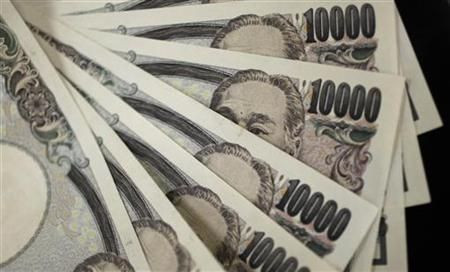Japan’s Trade Deficit Widens In September

Japan reported Monday a rise in trade deficit in September compared to the same month last year with a decrease in exports and increase in imports.
Japan’s Finance Ministry data showed that the country recorded a 558.6-billion yen ($7.0 billion) trade deficit in September, compared to a surplus of 288.8 billion yen last year.
Exports dropped 10.3 percent in September from a year earlier, indicating the soft global demand. There was a slump of 14.1 percent in exports to China compared to the previous year. The relationship between China and Japan took a bad turn after Tokyo in September said that it would buy the East China Sea islands claimed by both countries. The purchase of the islands for 2.05 billion yen ($26 million) was approved by Japan's cabinet Sept 11.
Protesters in China called for boycott of goods from Japan. Japanese companies such as Toyota Motor Corp, Honda Motor Co and Nissan Motor Co. stopped production at certain plants in China.
While exports to Europe dropped 21.9 percent, exports to the U.S. rose 0.9 percent. The continuing debt crisis in Europe and the strength of the Japanese yen have also hurt the demand for exports, the key driver of Japan's economy.
Meanwhile, imports rose 4.1 percent in September from the previous year as the nuclear energy crisis has resulted in the increased need of oil and gas. The government decided to shut down the country’s nuclear reactors following the earthquake and tsunami in 2011 that resulted in the worst nuclear accident in 25 years.
Of the 54 nuclear reactors, the last one went offline from May 5 and for the first time in four decades the country was without atomic energy resources.
Earlier this month, it was reported that Japan’s core machinery orders fell in August compared to that in the previous month, showing that there is an urgent need to take additional measures for enhancing the growth potential of the economy. According to the data released by the Cabinet Office, Japan’s core machinery orders declined 3.3 percent in August, down from 4.6 percent increase in July.
The Bank of Japan reported this month that the general business conditions in the manufacturing sector in the country worsened in the quarter ending Sept. 30, indicating that the country’s economy continued to be affected by the weakening of exports due to the soft global demand. According to the data released by the central bank, the Tankan large manufacturing index dropped to minus 3 in the quarter, down from minus 1 in the April-June quarter.
© Copyright IBTimes 2025. All rights reserved.





















